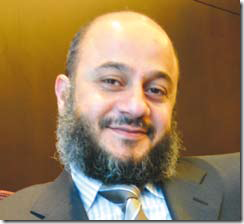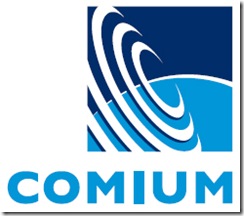Expresso Telecom, the international investment arm of Sudanese operator Sudatel, has kept a low profile as it has gone about acquiring greenfield and operational CDMA operators in West Africa in the past few years. As the company prepares for significant investment into its subsidiaries and for a shareholder restructuring programme, chief financial officer and acting CEO Emad Sukker shares with Michelle Mills how the company intends to grow organically, while extending its geographical footprint
 Dubai-based Expresso Telecom focuses on operating CDMA mobile networks across West Africa, having acquired Intercellular in Nigeria and Kasapa in Ghana, as well as new licences in Mauritania and Senegal. Chief financial officer and acting CEO Emad Sukker says the company is trying to distinguish itself in the realm of CDMA technology, which Sudatel also uses for its mobile network in Sudan.
Dubai-based Expresso Telecom focuses on operating CDMA mobile networks across West Africa, having acquired Intercellular in Nigeria and Kasapa in Ghana, as well as new licences in Mauritania and Senegal. Chief financial officer and acting CEO Emad Sukker says the company is trying to distinguish itself in the realm of CDMA technology, which Sudatel also uses for its mobile network in Sudan.


 Santino Saguto, partner and managing director of Value Partners Dubai
Santino Saguto, partner and managing director of Value Partners Dubai Qualcomm’s Jay Srage believes mobile computing has opened up an entirely new market segment category full of opportunities for the wireless industry
Qualcomm’s Jay Srage believes mobile computing has opened up an entirely new market segment category full of opportunities for the wireless industry Since it was established in 1994, Comium Group has witnessed an evolution, growing into a telecoms group spanning four continents with operations in a number of countries, from Cote d’Ivoire to Lebanon, France, Brazil and the US.
Since it was established in 1994, Comium Group has witnessed an evolution, growing into a telecoms group spanning four continents with operations in a number of countries, from Cote d’Ivoire to Lebanon, France, Brazil and the US.  The mobile industry is adopting green policies in line with global initiatives to focus on sustainable and renewable power sources and lessening climatic impact on the environment. Developing markets have been quick to trial and adopt these new initiatives – both from a corporate social responsibility perspective, as well as in order to reduce OPEX associated with maintaining off-grid base stations (BTS) in challenging environments. Green Giraffe’s Michèle Scanlon reports
The mobile industry is adopting green policies in line with global initiatives to focus on sustainable and renewable power sources and lessening climatic impact on the environment. Developing markets have been quick to trial and adopt these new initiatives – both from a corporate social responsibility perspective, as well as in order to reduce OPEX associated with maintaining off-grid base stations (BTS) in challenging environments. Green Giraffe’s Michèle Scanlon reports
